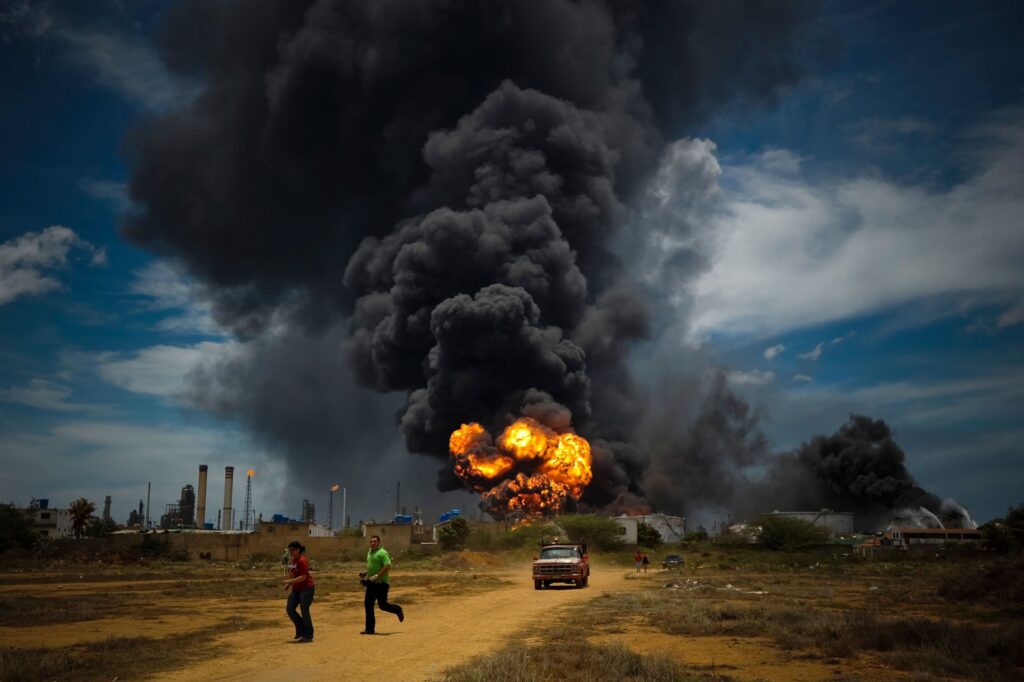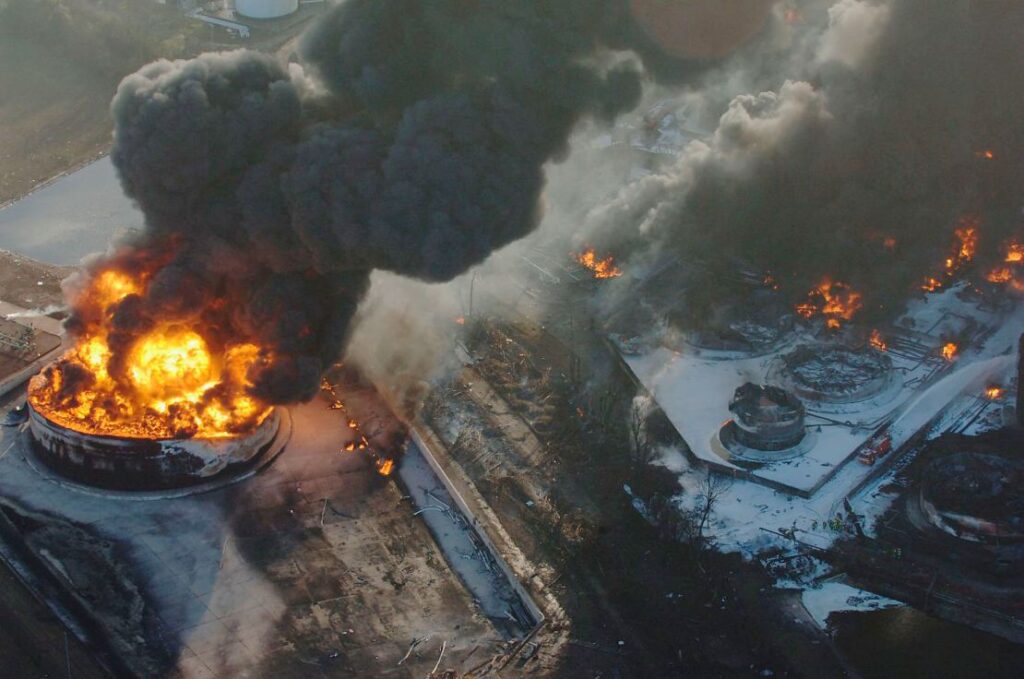Natural gas exports have lax oversight that experts say could lead to a devastating explosion. It’s happened before
- By Steve Contorno,
- Thu March 21, 2024

Top line:The crowd at Quintana Beach was enjoying a respite from a sweltering June day two years ago when the calm was shattered by a fiery explosion.
A sphere of orange flame flew into the air above Freeport LNG, a liquefied natural gas export terminal between two beaches near the Gulf Coast city of Freeport, Texas. The vapor cloud explosion was so forceful that two lifeguards at the beach were blown off their chairs.
Roughly 3 miles away, David Earl Walker’s house rattled.
“I heard something go boom — and then the house was shaking,” Walker told CNN. “And this house has a concrete foundation.”
Independent experts told CNN the June 2022 explosion was a red flag for the natural gas export industry, whose growth is skyrocketing.
In its quest to find buyers for the glut of methane fuel the US produces, the industry has thrown its weight behind exports: facilities like Freeport LNG condense the planet-warming gas into liquid, funnel it into massive tankers and ship it overseas.
The country’s export capacity for liquefied natural gas, or LNG, is almost entirely located on the Gulf Coast. It has more than tripled since 2018, US Energy Secretary Jennifer Granholm told reporters recently, and could triple again in the coming years.
But federal safety regulations and oversight haven’t kept pace with the industry’s surge. Multiple experts CNN spoke with described gaping holes in federal rules for LNG facilities, which haven’t been updated since 1980, and give companies leeway to keep their emergency and safety plans away from the public eye.
The lack of oversight grows more concerning as the Gulf Coast faces an increase in climate change-related extremes, including sea level rise and more intense hurricanes.
“The regulations are way behind schedule, and nobody’s addressed them,” said Tim Doty, a former inspector for Texas Commission on Environmental Quality and energy consultant. “There’s a huge hole in the system,” Doty said, that leaves nearby communities “really dependent on what the company does and how they run their ship.”
As alarming as the Freeport explosion was, it could have been much worse.
In 2012, an undetected leak at Venezuela’s largest oil and LNG refinery experienced a similar kind of vapor cloud explosion. When it ignited, likely by nearby vehicles, it set off a catastrophic blast that killed 47 people and destroyed or damaged more than 3,000 homes and buildings. It took firefighters four days to put out the blaze.
As the LNG industry grows in the US, experts and advocates are ringing alarm bells.
The way federal regulators approach natural gas safety should be comparable to their stringent approach to nuclear energy, said Naomi Yoder, a data manager who focuses on LNG at the Bullard Center for Environmental and Climate Justice at Texas Southern University. The probability of an accident in either industry is very low, but the impact could be catastrophic.
“Why wouldn’t we have robust regulations around that?” Yoder asked. “From a logical standpoint, it makes no sense. If the public knew what was in their back yard, there would be a public outcry, and these places wouldn’t exist.”

‘A totally explosive cloud’
A fire marshal’s report gives some insight into the Freeport LNG explosion in 2022. The fireball that terrified beachgoers burned up within a matter of seconds. No one was killed or injured, but the explosion propelled debris through the facility and left twisted metal and broken pipes in its wake. A pool of chemicals burned for 45 minutes but was eventually contained.
The incident report from the company was heavily redacted because of the “confidential business information” it contained, but it’s clear there were warning signs.
Freeport LNG’s investigators found a pipe valve had been blocked for days, leading to a buildup of gas and pressure that exploded when it was ignited, likely by an electrical spark. Something was visibly wrong with the blocked pipe, the fire marshal’s report noted, so much so that it had fallen off its supports — but plant personnel didn’t fix it in time.
Freeport LNG declined to comment on a list of questions from CNN but referred to its 2022 statement: “At no time did the incident pose a threat to the surrounding community,” the company said.
While experts told CNN that liquifying gas is one of the safer ways to transport it, significant risks remain. Natural gas itself is combustible; it’s primarily made of methane, a potent planet-warming gas, and it’s the fuel we burn in our homes to power things like gas stoves and furnaces.
But it’s the chemicals used to chill and condense methane into liquid that pose the highest risk of explosion at these facilities, experts explained.




